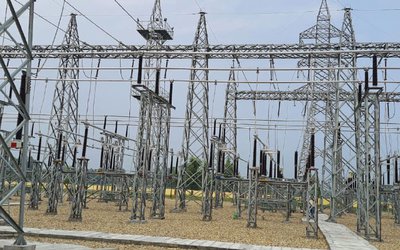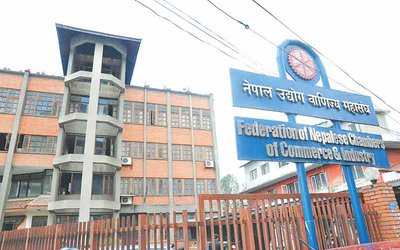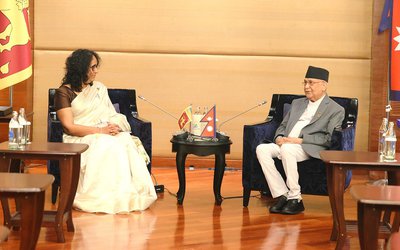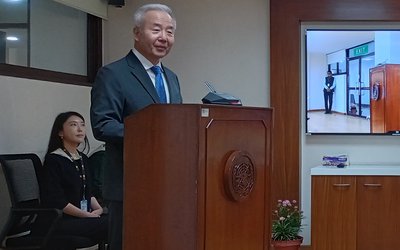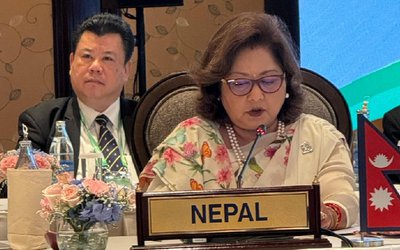
Sanukaji Maharjan, 56, an earthquake victim of Bungmati, decided to build his shelter on his own after listening to the 3-hour-long budget speech presented by finance minister Bishnu Paudel. Maharjan found nothing was there in the budget for victims like him.
Although the budget announced by finance minister Paudel increased the salary of civil servants by 25 percent, funds of parliament members in the Development Fund by 100 percent to 30 million each, social benefits to elders, some 200.000 each to conflict victims, but earthquake victims like Maharjan, who have been waiting for almost a year to see concessional loans, got frustrated. Even the announcement of construction of three international airports and roads, for example, meant not much for them.
“I cannot wait anymore as this government will give us nothing. I will start construction of my house within my own capacity,” said Maharjan in his frustration and anger. "As the process to apply for Rs. 200.000.00 is so complex and lengthy, I am not certain if I can get it or not.”
The story of Krishna Man Shrestha of Thaiba is similar. With five family members, he has been living in a temporary shelter for the last one year, facing all kinds of natural hostilities, rain, wind, hailstorm and cold. “Had we constructed the house on our own, we would have the house ready by now. Our mistake is that we trusted the government,” said Shrestha.
The budget even does not say anything about the power projects and industries damaged by the earthquake. Given such a situation, the recovery process will be too difficult.
At a time when the nation is desperately in need to accelerate the development work and provide shelter to earthquake victims, the budget allocated just 30 percent of as capital expenditure and over 70 percent of budget was allocated under concurrent expenditure.
As the government is claiming the current budget is among the best budget so far presented in Nepal, with more packages for earthquake victims than there were in previous years, economists argue that the expansionary nature of the budget for the next fiscal year is going to push more Nepalese into poverty with no long term resettlement package for earthquake victims.
Despite the claim of government to reduce the percentage of people under the poverty line and provide adequate budget for earthquake reconstruction, there is no such mechanism in the new budget. It will definitely increase the number of people under poverty line. As earthquake has already pushed the numbers of people below the poverty line, the new budget will add the number further.
“I have not seen any concrete recovery plan for earthquake victims. The new expansionary budget will likely to push more people under the poverty line,” said economist Bishwhambher Pyakuryal.
Finance Minister Bishnu Poudel presented a budget in Parliament of Rs 1,048.9 billion for fiscal year 2016-17, with an aim of reducing poverty, increasing economic growth and preparing the base for a prosperous Nepal.
At a time when there is virtually no recovery plan for earthquake victims, the government will have to allocate much of its budget to pay the salary of government employees, MPs and other concurrent spending. Although the last budget announced Rs. 200,000.00 for each household, the government is yet to distribute the money to one thousand victims.
The increase in social security, salary rise, additional money for MPs and other subsidy will add extra burden on state coffers. “The distribution of the budget across all the 'dream projects' would not contribute to capital formation and increased productivity,” said former finance secretary Rameshwor Khanal.
The deficit budget, which aims to mobilize Rs 565.9 billion from taxes and non-tax revenues, has failed to introduce any radical program to reach the earthquake victims living in the temporary shelters and tents.
However, finance Minister Bishnu Prasad Paudel defended the budget saying that all the allocations made in the budget are targeted, planned and output oriented and there is enough money allocated for earthquake recovery.
“The budget for next fiscal is not as expansionary as portrayed by critics. The budget has been expanded by just 28 per cent as compared to the current budget. The share of recurrent expenditure in total budget is less than 0.1 per cent and the capital expenditure has been increased by only 4.5 per cent as compared to previous budget,” said finance minister Paudel.
“The fiscal budget has largely focused on productive capacity enhancement, reconstruction of earthquake ravaged infrastructure, new infrastructure projects like hydro electricity, transmission lines, airports and road connectivity, and aimed to stimulate economic growth to 6.5 per cent in next fiscal from dismal economic growth of 0.77 per cent in this fiscal,” said finance minister Paudel
“If you look at the total allocation of budget to earthquake recovery, it is more than 100 billion rupees. As national reconstruction authority amended its working rules, more people will receive the money. Even the commercial banks will distribute concessional loans to victims from this fiscal year," said Yubaraj Khatiwada, vice chairman of National Planning Commission.
At a time when the economy is chronically ill and private investor confidence is low, higher public spending is necessary to create jobs and give impetus to economic growth.
One example of the distributive program incorporated in the budget is the decision to raise grants, under the Constituency Development Program, for each of around 596 lawmakers to Rs 5 million from the existing Rs 2 million. Also, each of the 240 electoral constituencies will receive Rs 30 million under the Constituency Infrastructure Special Program in the next fiscal — up from existing Rs 15 million.
Yet the government has raised the budget for these programs to please the lawmakers, which is expected to increase financial burden on the government by at least Rs 5.4 billion.
“Such a hike in recurrent spending exerts pressure on upcoming governments to give continuity to the trend, which is not good for financial health of the country. Given the present state of NRA, I don’t see any tangible change in the life of earthquake victims as well,” said Dr. Swarnim Wagle.
Despite the claim of government, there is little hope for over 8 million people affected by the earthquake to reconstruct over 500,000 houses any time soon as per the model prepared by the government. Following the presentation of the budget, many people like Maharjan and Shrestha will build their houses on their own which will be vulnerable to future earthquakes.

Keshab Poudel
Poudel is the editor of New Spotlight Magazine.
- FM Dr. Deuba’s India Visit: Mission Aborted
- Mar 26, 2025
- AMBASSADOR MAEDA TORU: Warm Regards
- Mar 24, 2025
- PRO-MONARCHY MOVEMENT: Rising Dissatisfaction
- Mar 23, 2025
- Dr. PRABIN MANANDHAR: Person With Humility
- Mar 16, 2025
- US SUSPESION OF GRANT: Impact On Nepal
- Mar 10, 2025

